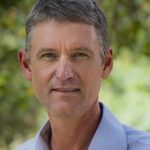Event Recording:
Intensive, industrial beef production in the US relies on confined animal feeding operations (CAFOs) and high-throughput slaughter and packing plants to produce reliable supplies at low prices.
Its problems are legion and infamous. Where did it come from, and how might it be different?
This talk examines the origins of the modern food system in the trans-Atlantic economic geography of the nineteenth century. Both the modern slaughterhouse and the feedlot were born in the Ohio River valley by 1840, as cattle and pigs consumed super-abundant maize harvests and their manure maintained soil fertility. Expanding westward after the Civil War, the middle-western range-feedlot system sacrificed the Corn Belt to the plough while enabling capital accumulation from extensive livestock production on the unploughed, semiarid rangelands to the west.
Pivotal to this vast novel ecosystem were British livestock breeds, whose biophysical needs and market dominance shaped land tenure systems, management practices and environmental politics throughout the Great West. Dominated by a handful of meatpacking corporations, the resulting cattle-grain-beef complex persists to this day. Today’s CAFOs invert the ecological dynamics of the original feedlot, however, turning a synergistic relationship between ranching and agriculture into a dysfunctional one.

Dr Nathan Sayre
Professor of Geography, University of California-Berkeley
Nathan Sayre is Professor of Geography at the University of California-Berkeley and a visiting scholar at the Oxford Martin School and the School of Geography and the Environment. A human geographer with twin foci on the environment and capitalism, he studies landscape transformations in relation to natural and anthropogenic processes at scales from the transcontinental longue durée to the decisions of individuals and communities in specific places and times.
He specialises in the history, management, science and political economy of rangelands: the grasslands, savannas, shrublands, steppes, deserts and tundra that comprise roughly 45 percent of Earth’s ice-free terrestrial surface. His most recent book is The Politics of Scale: A History of Rangeland Science (University of Chicago Press, 2017). He has also published on scale, carrying capacity, scarcity and the anthropogenic. He teaches classes on Food and the Environment, Global Warming, Nature and Culture, and Contemporary Geographical Thought.
Keep in touch
If you found this page useful, sign up to our monthly digest of the latest news and events
Subscribe